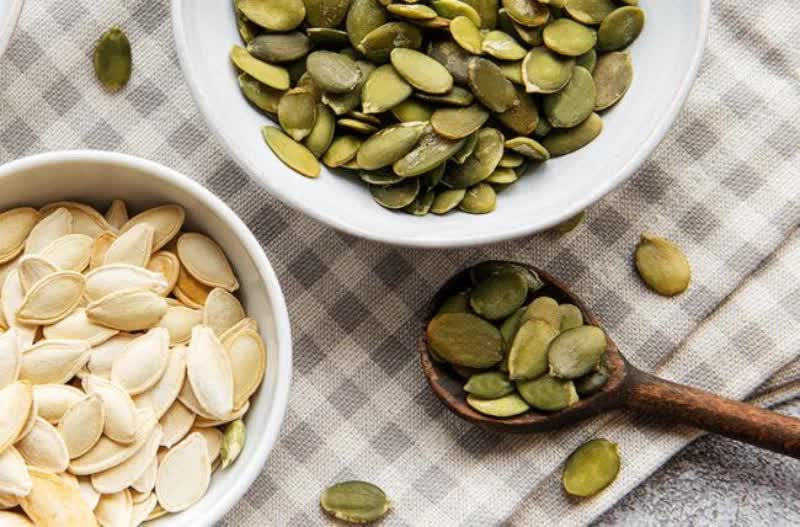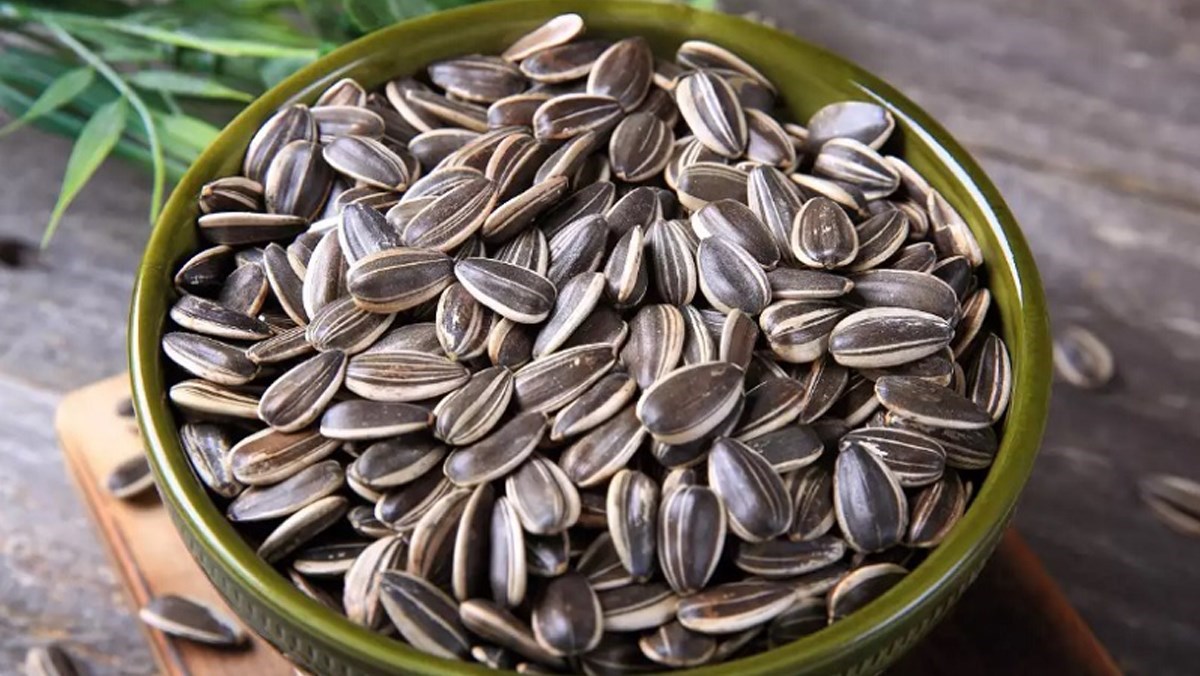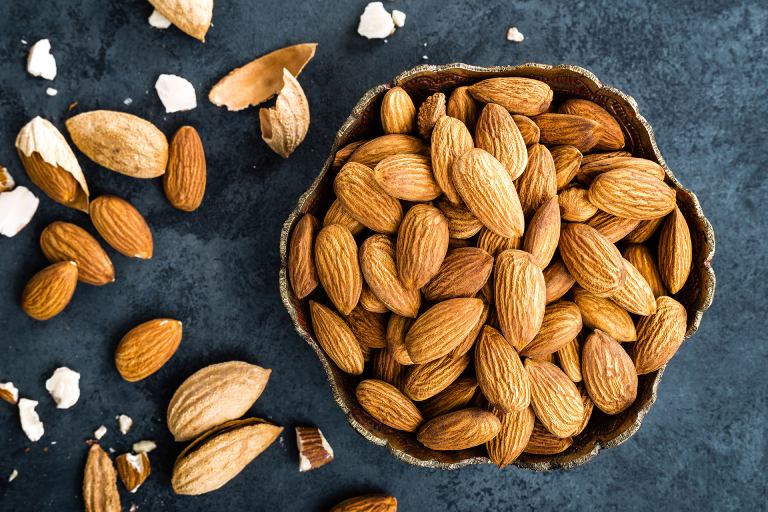Every time Tet comes, Vietnamese people have the habit of buying cakes, candies, and many kinds of nuts to treat guests who come to visit their home. Among them, there are many types of rustic, affordable nuts that are used on this special occasion.
Below are 4 types of nuts known as "kings" of heart health, with extremely low glycemic index. Don't forget to add them to your family's tray of cakes and candies this Tet holiday.
These are definitely "small but mighty" seeds because they have many health benefits.
1. Pumpkin seeds (glycemic index 25)
Pumpkin seeds are among the foods with a low glycemic index, proven to help control blood sugar thanks to their rich magnesium content.
A quarter cup of pumpkin seeds contains nearly half of the recommended daily intake of magnesium. Magnesium has been shown to benefit your blood pressure and help prevent sudden cardiac arrest, heart attack, and stroke.
Pumpkin seeds are rich in antioxidants, which reduce inflammation and protect cells from harmful free radicals. Some studies have shown that pumpkin seeds may help prevent the development of cancers such as breast and prostate cancer.

These seeds can improve heart health by reducing blood pressure and blood fats, two important factors affecting the risk of heart disease. Pumpkin seeds are also a good source of fiber, promoting digestion.
Diets rich in fiber have been shown to reduce the risk of type 2 diabetes and obesity. In addition to pumpkin seeds, pumpkin oil is also a nutritious food, especially rich in omega-6.
2. Sunflower seeds (glycemic index 35)
Sunflower seeds have a low glycemic index, which means they do not cause a sudden spike in blood sugar levels after eating. They are very helpful in controlling blood sugar, especially in type 2 diabetics.
Studies have shown that consuming nuts (including sunflower seeds) is associated with a reduced risk of heart disease, high cholesterol, and high blood pressure. The vitamin B3 and fiber in sunflower seeds reduce harmful cholesterol levels in the blood and heart-related problems.
This popular Tet seed contains vitamin E, flavonoids, and other plant compounds that can reduce inflammation. The vitamin E in sunflower seeds can support good vision, helping to prevent eye diseases such as age-related macular degeneration.
Sunflower seeds are a good source of vitamins and minerals like zinc and selenium, which can support your immune system and help fight viruses, according to WebMD. However, these seeds are quite high in calories, and eating large amounts of them regularly and eating them with salt and additives can cause weight gain.

3. Cashews (glycemic index 25)
Cashews are easily found in candy trays during Tet because of their delicious taste. This type of nut has a high protein content, contributing to healthy muscles and supporting body functions. As a food rich in fiber, cashews help regulate blood sugar levels.
A 2017 study in the American Journal of Clinical Nutrition found that incorporating cashews into your diet can lower “bad” LDL cholesterol — the kind that causes harmful fatty deposits to build up in your arteries.
Additionally, adding cashews to your diet can have a significant impact in preventing blood sugar spikes. Cashews are also rich in antioxidants, which help reduce inflammation and are good for your heart health.
These nuts are packed with fatty acids and other brain-boosting nutrients that help boost overall brain function. The potassium, magnesium, and unsaturated fats in cashews have been shown to lower blood pressure, according to a 2019 study.
4. Almonds (glycemic index 15)
Among nuts, almonds have the highest calcium content. 100g of almonds contain 254mg of calcium, equivalent to 26% of the calcium needed in a day.
According to the American Heart Association, consuming almonds may prevent or reduce the risk of heart disease in people with diabetes.
Some studies have shown that almonds can improve blood fat levels, possibly replacing other fats in the diet.
Just eating 1-2 handfuls of almonds a day is enough to lower blood fat, reduce the risk of heart disease, and prevent the development of atherosclerosis due to the oxidation of harmful cholesterol.

Almonds help stabilize blood sugar because they are high in healthy fiber, healthy unsaturated fats, and protein while being low in carbs. This means they can help promote feelings of fullness without causing a spike in blood sugar.
These nuts are also rich in magnesium, a mineral that is closely linked to blood sugar control, making them good for people with diabetes. Almonds are a rich source of vitamin E and flavonoids, natural antioxidants.
Some studies suggest that vitamin E from almonds may help support healthy skin aging by protecting skin cells from wrinkles and sun damage.
According to Healthline, WebMD
Source




















































![[Maritime News] More than 80% of global container shipping capacity is in the hands of MSC and major shipping alliances](https://vphoto.vietnam.vn/thumb/402x226/vietnam/resource/IMAGE/2025/7/16/6b4d586c984b4cbf8c5680352b9eaeb0)













































Comment (0)